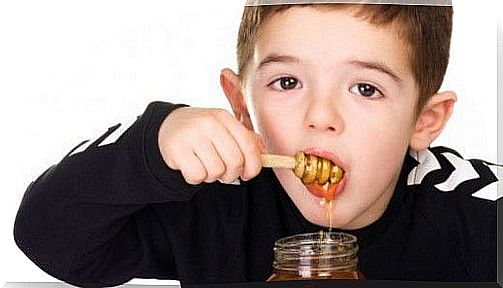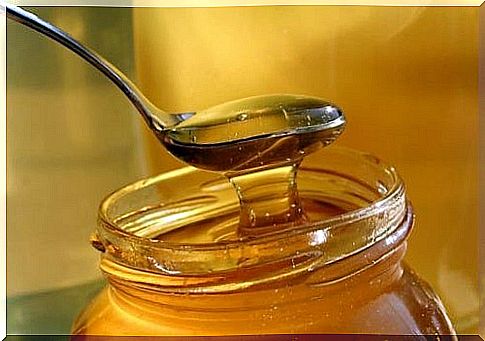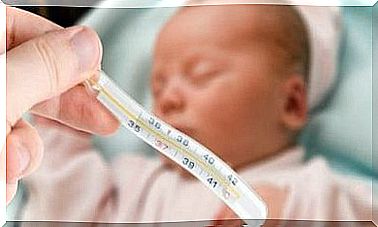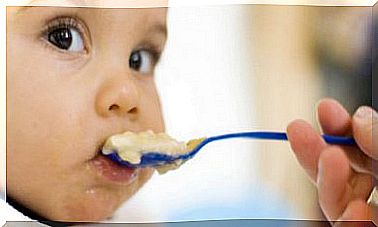Why Is Honey Not Recommended For Newborns?

We all know the multiple benefits of honey. It is a natural product and in many cases 100% recommended. Yet there are important reasons why honey is not recommended for infants and children less than one year old. This natural sweetener, of course, is made up of sugar. It is also risky because it could contain a bacterium that is very dangerous for newborns.
Many families believe that honey can help naturally sweeten baby’s milk and foods, and even go so far as to put it on pacifiers. It is also used for burns and wounds. We ultimately use it for many uses, but it’s not always the best option.
Just as there are many reasons to consume honey, there are just as many reasons not to give it to babies.
Due to the multitude of properties that have been attributed to this food, adults do not hesitate to consider it suitable for children. Despite this, according to the researchers, without knowing it we run into a very serious mistake. Here are the main reasons why we must avoid it if the children are too young.
Giving honey to babies is dangerous
Honey is a natural product that may contain a bacterium known as Clostridium botulinum, capable of causing botulism. This microorganism can survive in honey and when it arrives in the intestine of the newborn, not yet mature, it can cause serious problems.

This risk only affects babies under twelve months old. The bacterium, on the other hand, is harmless to adults or older children. The digestive system has natural defenses against this and other bacteria: stomach acid is the first barrier. However, these defenses have not yet developed in infants.
Other sweeteners that derive from sugar cane can also be harmful, because they are part of the foods that could promote the onset of infant botulism. This problem began to be diagnosed about forty years ago; the bacterium has been found in various organisms, in the earth and, above all, in honey.
As is well known, other elements cannot be controlled, but the consumption of this food must be stopped immediately. For this reason, once the discovery was made, it was issued regarding the consumption of this food.
Honey may contain the bacterium Clostridium botulinum
Spores of the bacterium Clostridium botulinum can survive in various products derived from bee honey and also from sugar cane. This bacterium is considered to be the precursor to the disease known as botulism. Botulism can be very serious and potentially fatal, it has a very strong impact, especially on newborns between six weeks and six months after birth.

Symptoms appear from the first days when the Clostridium botulinum spore reaches the baby’s intestine and can evolve up to a month later. Initially it manifests itself through constipation, so it is often difficult to distinguish it from other diseases.
Other symptoms that indicate the presence of this disease are:
- Muscle weakness
- Inability to keep the head straight
- Respiratory problems
- Sagging eyelids
- Weak and recurrent crying
- Difficulty in sucking and swallowing
- Lack of muscle tone
- Lethargy
- Paralysis or mobility impairment of the lower extremities
- Loss of gag reflex
In general, this disease is treated effectively when diagnosed early. It is controlled by botulic immunoglobulins, which manage to make it disappear in a relatively short time, although most cases require hospitalization.
Supportive therapy involves adequate nutrition and checking that her respiratory system is not blocked and is functioning well. After all, the complications it can have are especially linked to any respiratory problems.









